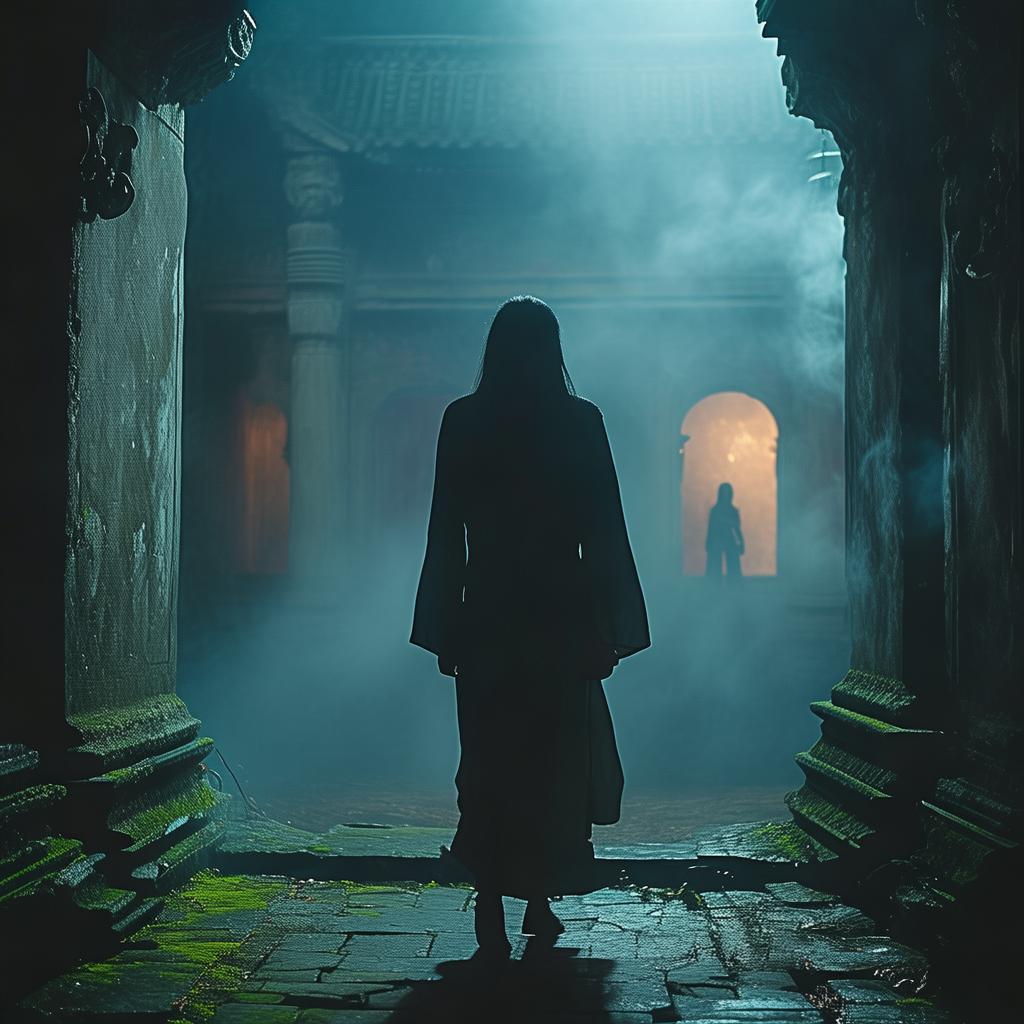The Silent March of the Forgotten
The sun had barely risen over the village of Liangshan, casting a faint, gray light over the cobblestone streets. The air was thick with the scent of damp earth and the distant sound of roosters crowing. In the heart of the village, nestled between ancient walls, stood the temple of the ancestors, its wooden doors slightly ajar as if beckoning the living and the dead alike.
In the temple, young Xiao Mei knelt before the alter, her hands pressed together in silent prayer. She had always been a quiet girl, her thoughts as deep and dark as the old, carved wood of the temple. Today, however, her mind was preoccupied with a haunting dream she had the night before. In it, the temple had come alive, its walls pulsating with a lifeless, yet eerie energy. Figures, both human and spectral, seemed to move in a silent march, their faces obscured by the shadows.
Xiao Mei's grandmother, a woman with eyes that had seen more than her years could account for, had whispered to her once, "The dead walk among us, Xiao Mei. They march in silence, seeking the forgotten."
That morning, Xiao Mei found herself drawn back to the temple. As she stepped through the creaking doors, the air grew colder, and a chill ran down her spine. She felt a presence, a whispering wind that carried with it the distant sound of footsteps. Her heart raced as she looked around, but there was no one there. The temple was empty, save for the old statues of her ancestors that seemed to have taken on a life of their own.
Xiao Mei knew she had to understand what she had seen. She began her investigation by speaking to the village elder, Mr. Wang, a man whose eyes held the weight of centuries. "Mr. Wang," she began, "have you ever heard of a rebellion of the dead in these parts?"
Mr. Wang's eyes widened as if Xiao Mei had spoken a forbidden word. "The rebellion of the dead?" he stammered, "That is an old tale, forgotten by most. It speaks of a time when the dead rose against the living, seeking justice for the injustices they suffered in life."
The elder's voice was tinged with fear, and Xiao Mei felt a chill creep up her spine. She pressed him further, "Why would the dead rise? What did they seek justice for?"
Mr. Wang hesitated before answering, "The rebellion was sparked by the 140's Revolution. Many of our ancestors were forced to leave their homes, their lands seized, and their lives turned upside down. Some, unable to bear the injustice, sought refuge in the afterlife, vowing to rise again to reclaim their honor."
Xiao Mei's mind raced with possibilities. She remembered the march she had seen in her dream. Could it be more than a dream? Could the dead be walking among them now, waiting for their chance to rise?
Her curiosity led her to the temple once more, this time with a sense of urgency. She stood in the center, her eyes scanning the room. Suddenly, she felt a hand brush against her arm. She turned, but no one was there. She spun around, her heart pounding, but the temple was empty.
It was then that she noticed a faint, almost imperceptible glow on the floor. Cautiously, she approached it, and there, etched into the stone, were the words of the 140's Revolution, a forgotten plea for justice.
Xiao Mei's mind raced as she pieced together the puzzle. The dead were marching, not just in her dream, but in the very streets of her village. They were waiting for the right moment, for the right spark to ignite their rebellion.

Determined to stop the march of the forgotten, Xiao Mei sought out Mr. Wang once more. "We must stop them," she said, her voice filled with resolve. "We must honor their memories and ensure their spirits find peace."
The elder nodded, understanding the gravity of the situation. Together, they devised a plan. They would build a monument to the ancestors, a symbol of their resilience and the justice they sought. They would hold a ceremony, one that would honor the dead and ensure they were not forgotten.
As the day of the ceremony approached, Xiao Mei felt a strange sense of calm. She knew that the march of the forgotten would end, but she also knew that the legacy of the 140's Revolution would live on. The village would remember, and the dead would find their peace.
The ceremony was a success. The village came together, united by a common cause. The monument stood tall, a testament to the resilience of the ancestors and the strength of the living. And as the sun set over Liangshan, Xiao Mei stood before the monument, her heart filled with hope.
She knew that the march of the forgotten had ended, but she also knew that the fight for justice would continue. The dead might have found peace, but the living would carry on the fight for a just world, one that would never forget.
In the end, the silent march of the forgotten had sparked a revolution not just of the dead, but of the living. And in the village of Liangshan, the echoes of the past had given birth to a future filled with hope and justice.
✨ Original Statement ✨
All articles published on this website (including but not limited to text, images, videos, and other content) are original or authorized for reposting and are protected by relevant laws. Without the explicit written permission of this website, no individual or organization may copy, modify, repost, or use the content for commercial purposes.
If you need to quote or cooperate, please contact this site for authorization. We reserve the right to pursue legal responsibility for any unauthorized use.
Hereby declared.









